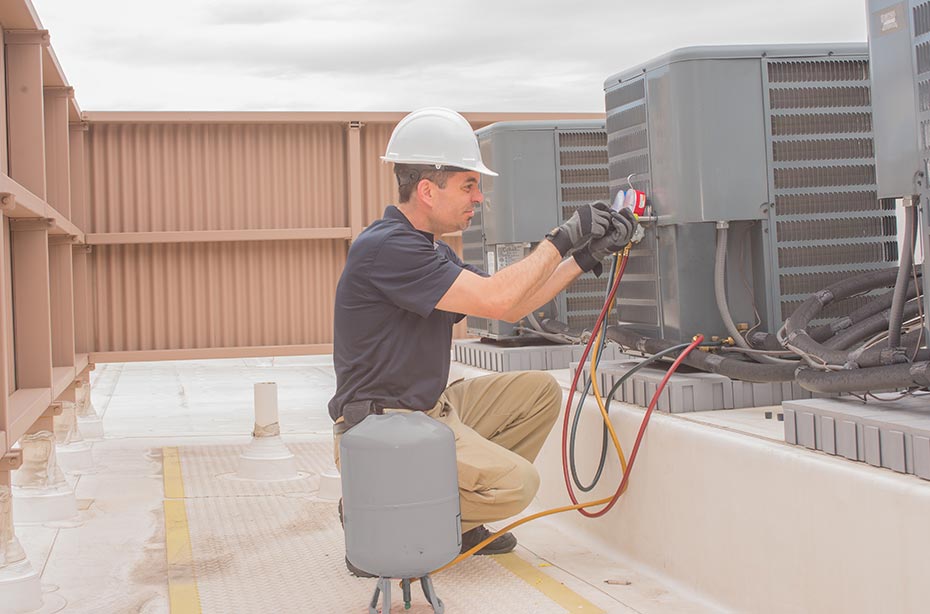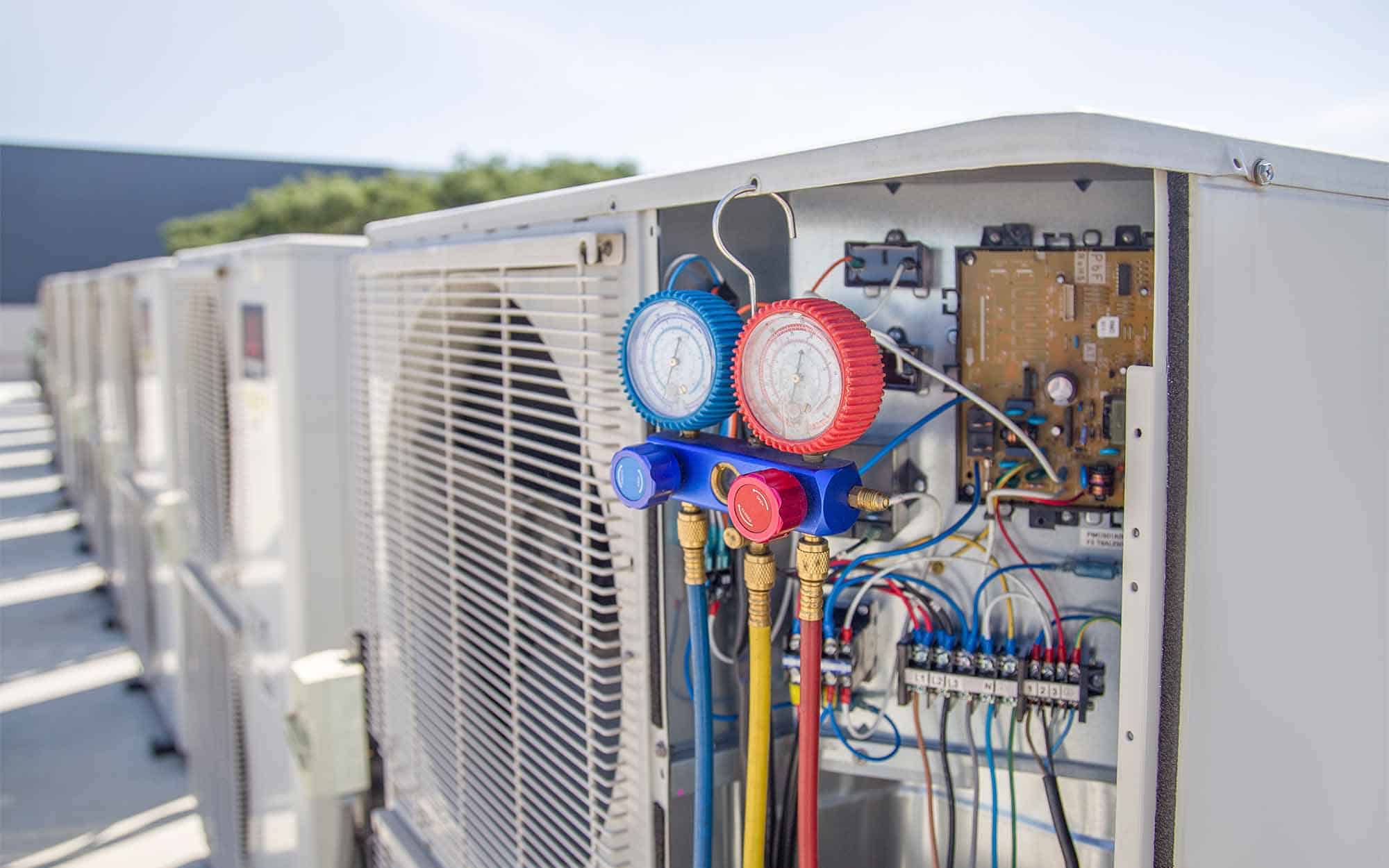How to Save on Your furnace replacement Project
How to Save on Your furnace replacement Project
Blog Article
Selecting Between a Warm Pump and Heating System: Key Considerations for Your HVAC Demands
When reviewing home heating choices for heating and cooling needs, the choice between a warm pump and a heater can be complicated. Each system supplies distinctive benefits tailored to details climates and power effectiveness goals. Comprehending these differences is crucial for making an informed selection. Secret variables such as installment expenses and ecological impact even more complicate the option procedure. Which option absolutely straightens with one's convenience and sustainability preferences? The following areas will check out these factors to consider thoroughly.
Recognizing Warm Pumps: How They Work and Their Advantages
While numerous house owners consider different heating choices, comprehending just how heatpump function and their advantages can greatly affect their choice. Warm pumps run by moving heat instead of generating it. In the winter season, they remove heat from the outside air or ground and move it indoors, while in the summer season, they reverse this procedure, cooling down the home by expelling warmth outside. This dual functionality makes them functional for year-round environment control.One of the key advantages of heat pumps is their power performance. They utilize considerably less electrical power contrasted to typical heating systems, potentially leading to reduced energy costs (furnace replacement). In addition, heatpump have a smaller carbon footprint, making them an eco-friendly option. They additionally call for less upkeep than standard systems, adding to long-lasting cost savings. In general, comprehending the auto mechanics and advantages of warm pumps can assist property owners make notified decisions regarding their heating and cooling down demands
Discovering Furnaces: Kinds, Procedure, and Benefits
Heating systems are available in different types, consisting of gas, electric, and oil designs, each with unique functional devices. Comprehending these distinctions is vital, as they affect efficiency and heating performance. Additionally, heating systems supply various benefits, such as consistent warmth outcome and reliability in cooler climates.
Kinds of Heaters
Furnace can differ significantly in design and procedure, with furnaces being a preferred option among home owners. There are numerous kinds of heaters, each using different gas resources and technologies. Gas furnaces are usual, leveraging gas to generate warm efficiently. Electric heaters, on the other hand, make use of electric resistance to create warmth, often preferred for their straightforward setup. Oil furnaces, while less usual, work in locations with limited gas accessibility (heat pump service). Furthermore, condensing heaters maximize energy performance by recycling and capturing exhaust gases. Each type runs via a system of warm exchangers and ductwork to disperse warm air throughout a home. Comprehending the distinctions in between these furnace kinds is vital for informed a/c decisions
Advantages of Heating systems
For home owners looking for trusted warmth throughout chilly months, the benefits of furnaces are significant. Heaters give consistent heating, making sure even temperatures throughout the home. They are particularly efficient in severe cool, often outmatching heatpump in icy problems. Different kinds, including gas, electrical, and oil furnaces, use adaptability to satisfy varied requirements and preferences.Furnaces likewise often tend to have lower initial setup prices compared to heatpump, making them a more accessible option for many. Their robust layout adds to a much longer life-span, with lots of systems lasting over 15 years with appropriate upkeep. In addition, modern-day heating systems are usually equipped with innovative modern technology for enhanced effectiveness, which can result in decreased power costs. Generally, heating systems stay a dependable choice for reliable home heating.

Energy Effectiveness: Contrasting Warmth Pumps and Furnaces
When comparing energy effectiveness in between heatpump and furnaces, the Seasonal Energy Performance Proportion (SEER) plays an important duty in establishing performance. Additionally, a functional price evaluation reveals the long-term economic ramifications of each system. Comprehending these elements can direct homeowners in making educated choices concerning their home heating solutions.
Seasonal Energy Performance Proportion
Energy performance plays a necessary role in the decision-making process in between heatpump and heating systems, especially when taking into consideration the Seasonal Power Performance Proportion (SEER) This statistics steps the cooling performance of heat pumps over a whole air conditioning period, giving a standard method to examine performance. Higher SEER rankings suggest greater energy efficiency, converting to reduced power usage and decreased utility bills. In comparison, heaters are usually analyzed utilizing the Yearly Fuel Application Effectiveness (AFUE) ranking, which reflects home heating efficiency. When comparing these two systems, home owners ought to prioritize SEER ratings for heat pumps, as they directly effect general energy savings and ecological sustainability. An extensive understanding of SEER can notably affect the long-lasting complete satisfaction and cost-effectiveness of the picked cooling and heating option.
Operational Price Evaluation
Understanding the functional expenses connected with warm pumps and furnaces is important for home owners examining their options. Warmth pumps commonly use higher power efficiency, transforming electric power right into warmth with minimal waste. This results in lower regular monthly utility bills, especially in moderate climates. Conversely, standard furnaces, especially gas versions, may have lower ahead of time expenses yet can incur higher functional expenditures gradually because of sustain prices and performance ratings.Moreover, heatpump can work as both home heating and cooling systems, possibly lowering the requirement for separate cooling and heating devices. While preliminary investments for warm pumps might be greater, their long-term financial savings in power efficiency can make them a much more cost-efficient option for lots of families. Careful evaluation of local power rates is essential to determine the best alternative.
Installment Costs: What to Anticipate for Each Home Heating System
Setup costs for heating unit can vary significantly between heatpump and heating systems, affecting house owners' decisions. Heat pumps typically have higher in advance setup expenses, normally varying from $3,500 to $8,000, relying on the device dimension and complexity of setup. This includes the outdoor unit, interior handling system, and essential ductwork alterations. Alternatively, heaters often tend to have reduced preliminary costs, pop over to these guys averaging in between $2,500 and $6,000, which can be appealing for budget-conscious home owners. Nonetheless, installation expenses can increase if comprehensive ductwork is required.Moreover, the choice of gas kind for heating systems-- gas, gas, or electrical-- can likewise impact installation costs. While heatpump offer power effectiveness, their preliminary investment might prevent some buyers. Inevitably, assessing installation costs alongside lasting savings and performance will assist homeowners in making educated decisions concerning their heating unit.
Environment Considerations: Which System Executes Better in Your Location
How do environment conditions influence the performance of home heating systems? The efficiency of heatpump and furnaces can vary greatly relying on the local environment. In moderate environments, heatpump excel by successfully transferring heat i loved this from the outdoors air, making them an energy-saving option. Their effectiveness lessens in incredibly chilly temperature levels, where they may struggle to draw out enough heat. On the other hand, heaters, particularly gas designs, supply consistent and reputable warmth no matter of outdoor conditions, making them more suitable in chillier regions.In areas that experience milder winters months, warmth pumps can operate effectively year-round, providing both cooling and heating. On the other hand, regions with severe winters usually benefit from the robustness of furnaces. Ultimately, understanding the local climate is essential when making a decision between a warmth pump and a furnace, as it straight impacts their operational efficiency and overall efficiency.
Maintenance Requirements: Long-Term Treatment for Warm Pumps vs. Furnaces
While both heatpump and heaters require normal upkeep to ensure peak efficiency, their specific needs and treatment regimens vary considerably. Furnaces normally need less constant interest, with annual examinations being adequate to check for gas leakages, tidy filters, and evaluate overall capability. Their simpler layout typically enables simple repairs.In contrast, warm pumps require semiannual maintenance because of their dual function in home heating and cooling. This consists of cleansing coils, inspecting refrigerant levels, and making certain that both the indoor and outside systems work at their best. Additionally, warmth pump upkeep often involves even more complex components, making specialist maintenance essential.Neglecting maintenance can bring about lessened performance and increased energy costs for both systems. Eventually, homeowners must consider these long-term care demands when picking in between a heatpump and a furnace, as positive upkeep can expand the life-span and efficiency of either system considerably.
Environmental Effect: Selecting a Lasting Home Heating Alternative
The ecological influence i loved this of heating unit is an important analysis for house owners looking for sustainable choices. Warm pumps are normally much more energy-efficient than typical heating systems, as they transfer warm instead than create it, greatly lowering carbon emissions. By making use of renewable resource sources, such as geothermal or air-source heat pumps, home owners can additionally minimize their ecological footprint.On the various other hand, gas furnaces discharge greenhouse gases and add to air contamination, though they usually offer higher heat result. Innovations in innovation have led to the development of high-efficiency heaters that reduce emissions.Ultimately, choosing a heating system entails considering performance against environmental influence. House owners are urged to show on local energy sources and incentives for eco-friendly systems, ensuring a selection that aligns with both individual comfort and ecological responsibility. The choice impacts not only prompt comfort but additionally long-term sustainability and ecological health.
Often Asked Questions
How Much Time Do Heat Pumps and Furnaces Generally Last?
The life-span of heatpump commonly ranges from 15 to twenty years, while heaters can last between 15 to three decades. Regular maintenance substantially affects their durability and performance in offering home heating remedies.
Can I Use a Warm Pump in Exceptionally Cold Climates?
Heatpump can operate in exceptionally cool climates, yet their effectiveness decreases as temperature levels decline. In such conditions, additional home heating resources may be required to preserve comfy interior temperature levels and assure peak efficiency.

What Is the Sound Level of Warmth Pumps Versus Furnaces?
The sound levels of heat pumps and heating systems differ substantially. Usually, heatpump run even more quietly than traditional heaters, making them better for those sensitive to sound, while heaters might produce louder functional noises throughout heating cycles.
Are Heat Pumps Suitable for Both Home Heating and Cooling?
Warmth pumps are without a doubt ideal for both home heating and cooling (ductless mini splits). They function by moving warmth, supplying effective temperature control year-round, making them a versatile choice for home owners seeking an all-in-one cooling and heating option
What Dimension Heating Unit Do I Required for My Home?
Establishing the ideal size heating system for a home calls for assessing variables such as square footage, insulation high quality, neighborhood climate, and the home's design. Consulting a specialist can guarantee an exact evaluation and optimal comfort. Warmth pumps generally offer higher energy performance, converting electric energy right into warm with very little waste. In modest climates, heat pumps succeed by successfully transferring heat from the outdoors air, making them an energy-saving choice. Conversely, furnaces, especially gas models, offer trustworthy and consistent heat no matter of outside problems, making them more suitable in cooler regions.In locations that experience milder winters, heat pumps can run efficiently year-round, giving both home heating and cooling. Heat pumps are normally more energy-efficient than standard furnaces, as they move warmth rather than create it, considerably decreasing carbon discharges. By making use of renewable energy sources, such as air-source or geothermal warm pumps, homeowners can further decrease their environmental footprint.On the other hand, all-natural gas heating systems discharge greenhouse gases and add to air contamination, though they frequently offer higher warm output.
Report this page